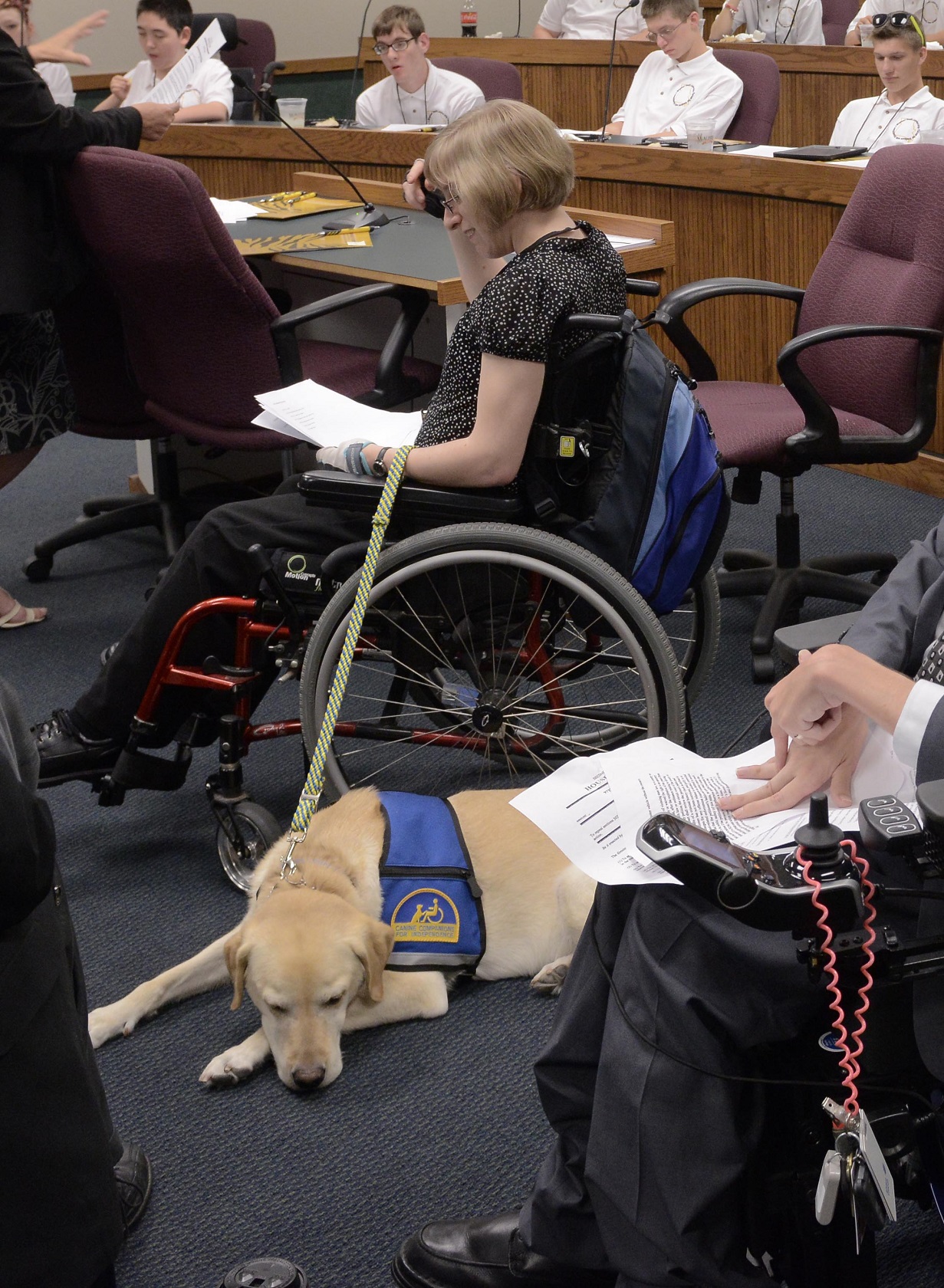The Missouri House has voted to expand the state’s legal definition of what qualifies as a “service dog,” and to make illegal the faking of having a service animal.

House Bills 1369 and 2031 are aimed at making life better for those who legitimately have service dogs and service animals, according to sponsor Chrissy Sommer (R-St. Charles). She said such people make up a growing segment of society, as the list of conditions dogs can help with continues to grow.
HB 1369 changes the definition of “service dog” to include psychiatric service dogs and mental health service dogs. The definition covers dogs that serve individuals with conditions including panic attacks, anxiety, autism spectrum disorder, epilepsy, Alzheimer’s disease, dementia, and post-traumatic stress disorder (PTSD).
Sommer said the Americans with Disabilities Act (ADA) has left the definition of what is considered a “service dog” in kind of a gray area, so HB 1369 will make clear what animals qualify as service dogs.
HB 2031 would add to Missouri’s law against impersonating a person with a disability the crime of misrepresenting a dog or animal as a service dog or assistance animal. It would make those misdemeanors punishable by up to fifteen days in jail, or up to 6 months for repeated violations.
Backers of HB 2031 said when people fake having a service animal it casts doubt on individuals who really do have them. Sommer said such fraud causes other issues as well, when untrained dogs have been, “attacking service dogs in training, them attacking patrons of a restaurant; airplanes are starting to crack down too because what happens is a service dog goes through training – how to handle and airplane, how to handle that pressure, how to handle the different noises, how to handle that small little area they have to be in, whereas a pet, if you try to bring them on a plane and say, ‘Oh, this is a service dog,’ I mean think of what it does to a person. They’ll freak out,” said Sommer.
St. Louis Democrat Tracy McCreery said she initially thought HB 2031 was not necessary, but has reversed that opinion.

“I think a lot of us see now, when we go out to eat or out into social settings, there seem to be a lot more dogs in places where normally animals are not permitted, like restaurants and things like that, so we need to kind of get a handle on things, if you will. Several states – I think there have been about 19 states that have cracked down on these fake services dogs,” said McCreery. “What the lady’s bill will do, I think, is help make things more comfortable for those families and people that actually have legitimate service dogs.”
HB 2031 would require the Commission on Human Rights to use its existing complaint hotline to take reports of individuals believed to be faking having a disability or a service animal.
It would also require the Governor’s Council on Disability to design a placard that restaurants and other businesses could display stating that service dogs are welcome and that misrepresentation of a service dog is illegal. A brochure would also be created to help business owners know what questions are allowed and guidelines on how to behave around service animals.
Each bill received only one “no” in the House’s vote to send them to the Senate for consideration.
Additional audio: